Support our diverse communities by buying tickets from the ALSO HEARTS raffle fundraiser! Tickets are available until July 31st, 2025.
Support our diverse communities by buying tickets from the ALSO HEARTS raffle fundraiser! Tickets are available until July 31st, 2025.
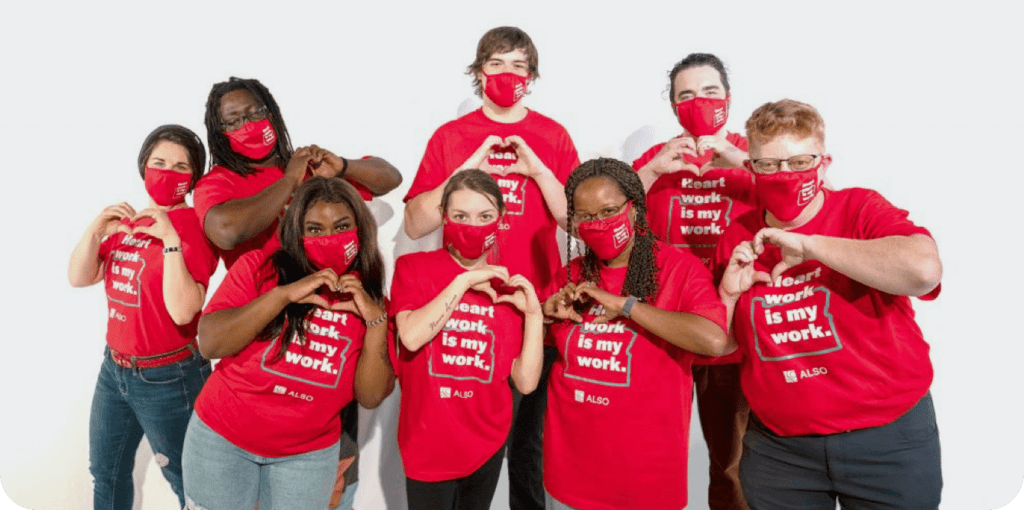
The way we communicate with others, about others, and for others, says a lot about who we are. This is why, at ALSO, we always use person-centered and identity-first language when we speak about and work with the people that we support. This type of language is extremely important to us because it acknowledges that no matter what kind of disability a person might have, they are a person first – a person who deserves respect, compassion, and dignity, just like anyone else.
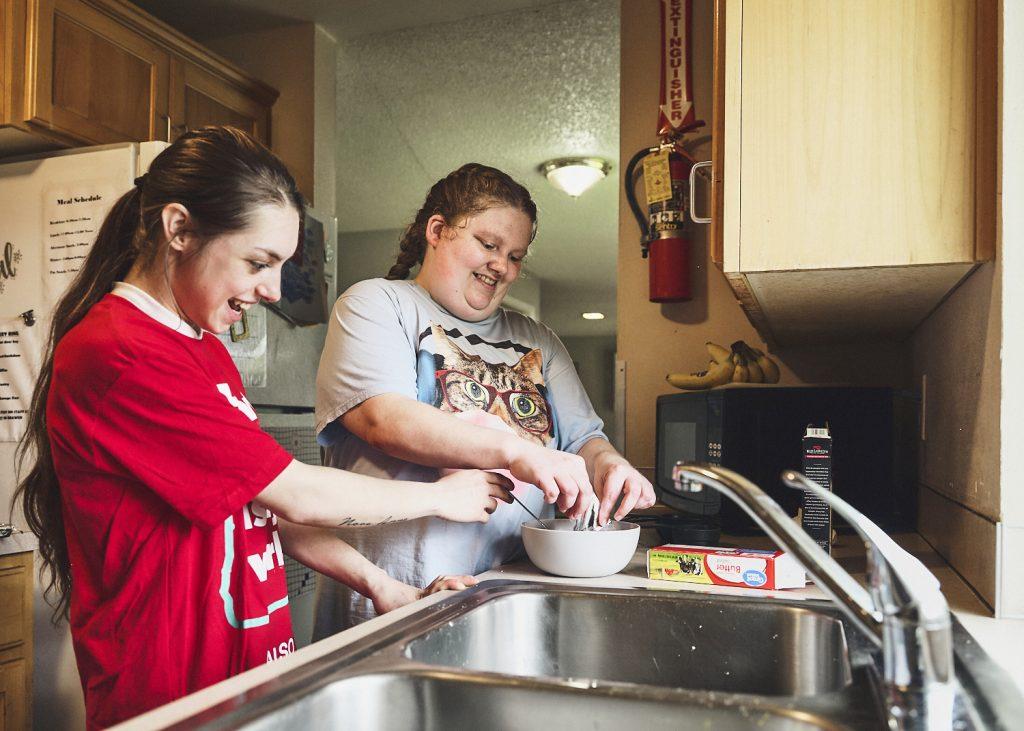
Using person-centered or person-first language means acknowledging that people are so much more than their disability. This is in contrast to deficit-based language, which identifies people according to ableist misconceptions assumed weaknesses, or misunderstood medical conditions.
For example, if someone describes an individual as “ wheelchair bound,” it’s reducing them down to their disability instead of recognizing their ability to navigate the world using a wheelchair as a wheelchair user. Instead of a member of a community, they become a series of assumed weaknesses that essentially regard that individual as less than a real person. Similarly, referring to someone as a “special needs individual” insinuates that their needs are extra than those around them, rather than a person with needs that are thus far unmet or unfulfilled.
As advocates for people with intellectual and developmental disabilities, we at ALSO view each person that we support as a whole person who has many strengths, weaknesses, abilities, disabilities, and goals. Person-centered language focuses on the importance of acknowledging these same valued traits and characteristics.
Also very important is that it’s a compassionate way of regarding a person: it gives the benefit of the doubt and a clear understanding of their needs.
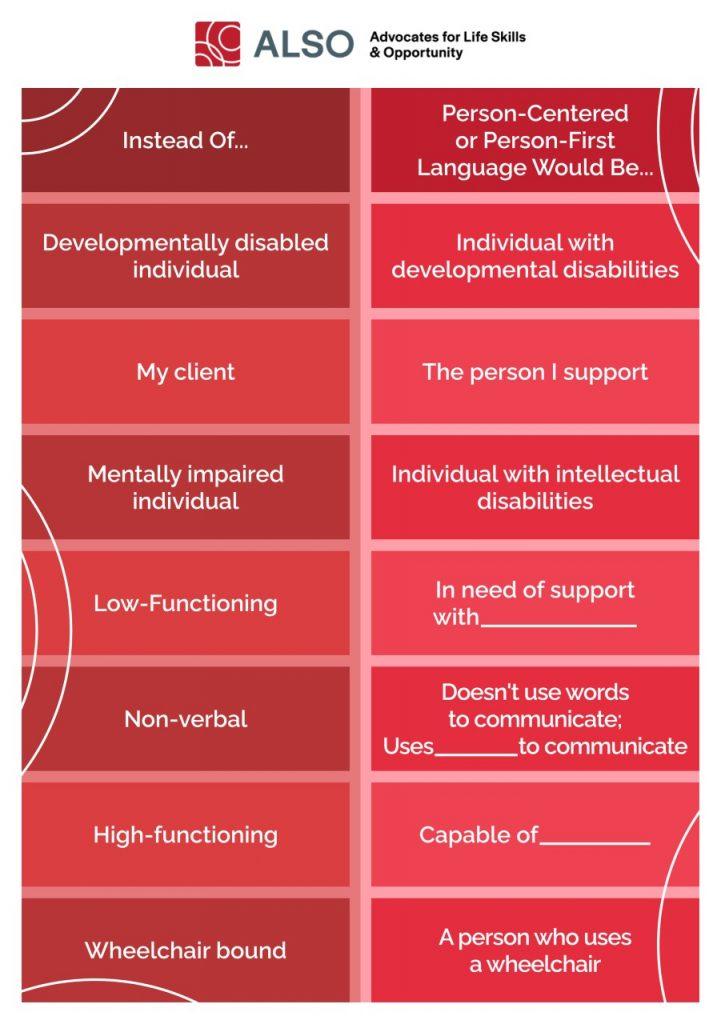
With just a few small changes, we can transform the way we communicate into the language of respect and dignity. Here are just a few person-centered language examples:
Admittedly, making these changes may seem overwhelming at first. Most people find that, as they practice language that is person-centered, it becomes progressively easier to change the habit. What’s extremely rewarding is when family, friends, and community members (such as employers) learn the value of person-centered language. It results in an extremely empowering and confidence-building experience for the people that we support.
Over the years, many people with disabilities and self-advocates have voiced a preference for an additional kind of language. It is called, “Identity-First Language.” This type of language is meant to convey a disability as an important part of the person’s identity. In other words, they don’t consider their personhood to be separated from their disability. Here are some examples of groups that may prefer identity-first language:
Many individuals see their disability or condition as a fundamental part of who they are. In addition, it’s an expression of solidarity with specific groups of people who may have the same (or similar) disabilities. This point of view creates a sense of community and can be very empowering.
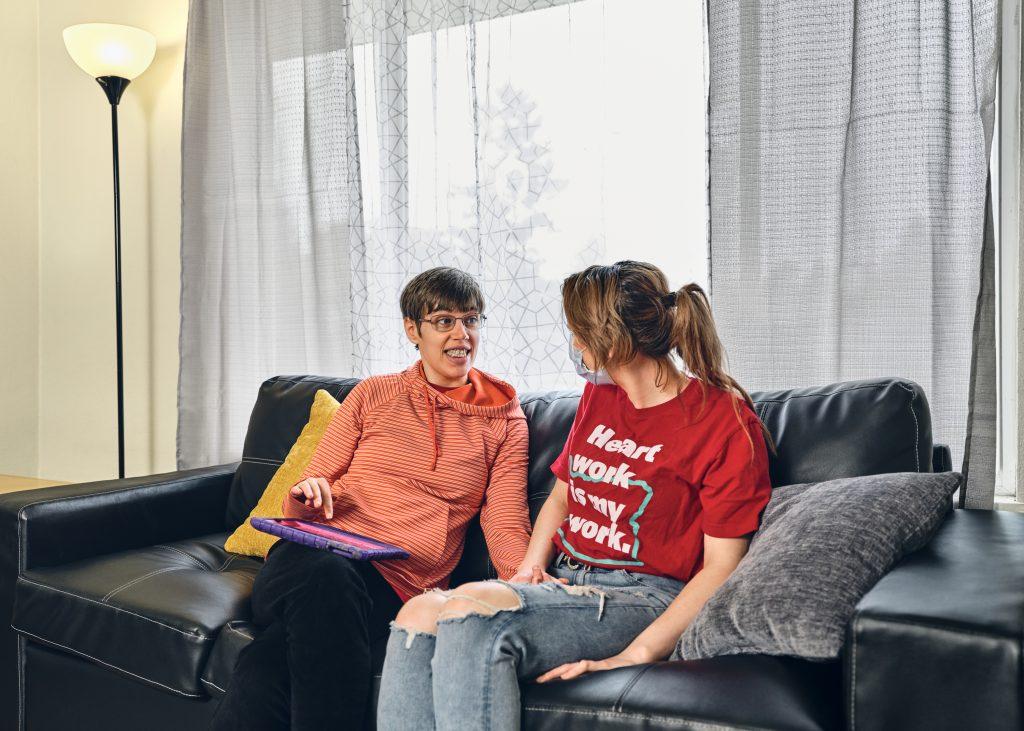
One of the most important things that we have learned thus far is that people can be quite different in the way that they would like others to refer to them. When you think about it, this is quite understandable! If we don’t respect the wishes of others in this regard, we are attempting to deny them of their self-agency.
Jevon Okundaye is a Black autistic man who graduated from Tufts University in 2019. His preference is identity-first language because of his desire to stand with the autistic community. Jevon, who has additional expertise in self-advocacy, recommends not making assumptions about others, and simply asking about their preferred language. In addition, it’s always helpful to research the general consensus of various groups.
ADDITIONAL RESOURCES: Learn more about self-advocacy
Read our Spotlight on ALSO self-advocate Kaaren Londahl
Person-centered language is also extremely valuable when describing actions, behaviors, and situations that the people we support might experience. If we aren’t careful, we can mistakenly label people with negative traits. When ALSO professionals talk to family members, the people we support, we view people with empathy rather than reducing behaviors to labels. This is the case even when we talk to our colleagues.

| Instead of… | Person-centered language would be… |
| Refusal | Doesn’t want to do something |
| Attention-seeker | Someone who has not had their social needs met |
| Resistant | Chooses not to; Not open to |
| Weaknesses | Barriers to achieving goals or meeting needs |
| Suffering with | Working to recover from; Living with; Experiencing |
These changes to patient-centered language describe the people we support in a more positive, dignified way. It avoids the danger of labeling and putting someone into the negative category of “resistive,” or “attention-seeking.” Even when using the word “weaknesses”, it reinforces a stereotype that those with intellectual and developmental disabilities (or any other condition or disability) are destined to remain somehow less able than others. Framing a “weakness” in the form of a “barrier to achieving goals” creates a higher potential for success.
The use of person-centered language is beneficial even when describing the numerous treatment strategies involved in supported living programming. As we describe how we provide assistance, we use language that is respectful, empowering, and empathetic. For example, an “outing” can be seen as a passive activity, whereas a trip to a shopping mall or grocery store is much more productive and engaging.
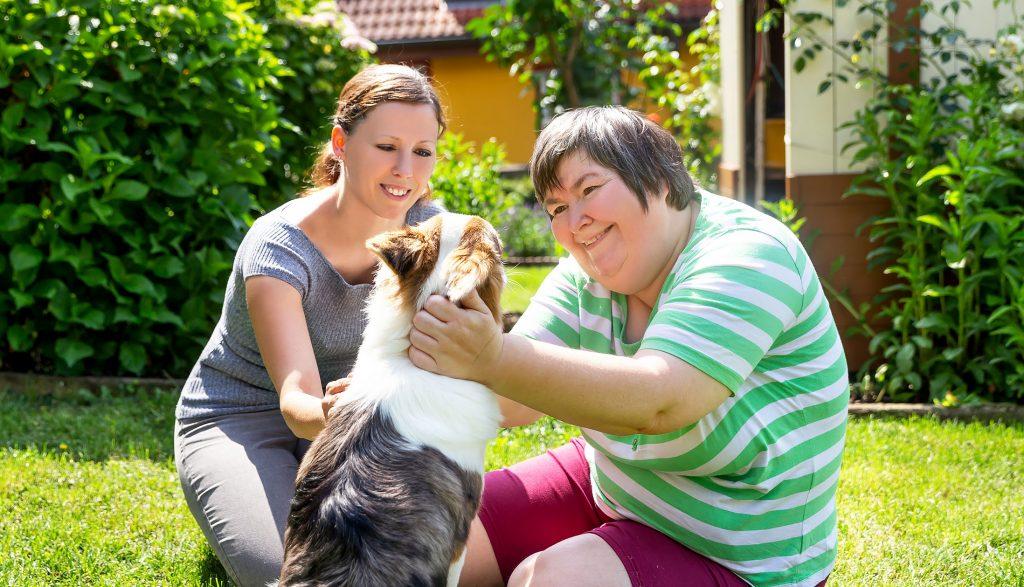
Advocates, researchers, clinical experts and thought leaders are consistent in emphasizing the power and value of person-centered and identity-first language. Evidence suggests that it is a factor in positive outcomes and recovery.
An even more fundamental rationale for the value of person-centered language is found in the following three words:
“Words create worlds.”
-Unknown
Experts at the Center for Practice Transformation remind us that the way we describe people with disabilities can easily influence how others, including potential employers, family, teachers, and other community members perceive that person. Even more critical is the realization that it influences how the people we support may perceive themselves and their future potential.
This means that the words we use (written or spoken) have a major impact on a person’s mental and physical well-being. There is an art and science that make words either harmful or empowering. It’s all about respecting the unique qualities, strengths, and abilities of the people we support. It’s exactly those abilities that are the building blocks of successful living in the home, community, and workplace.
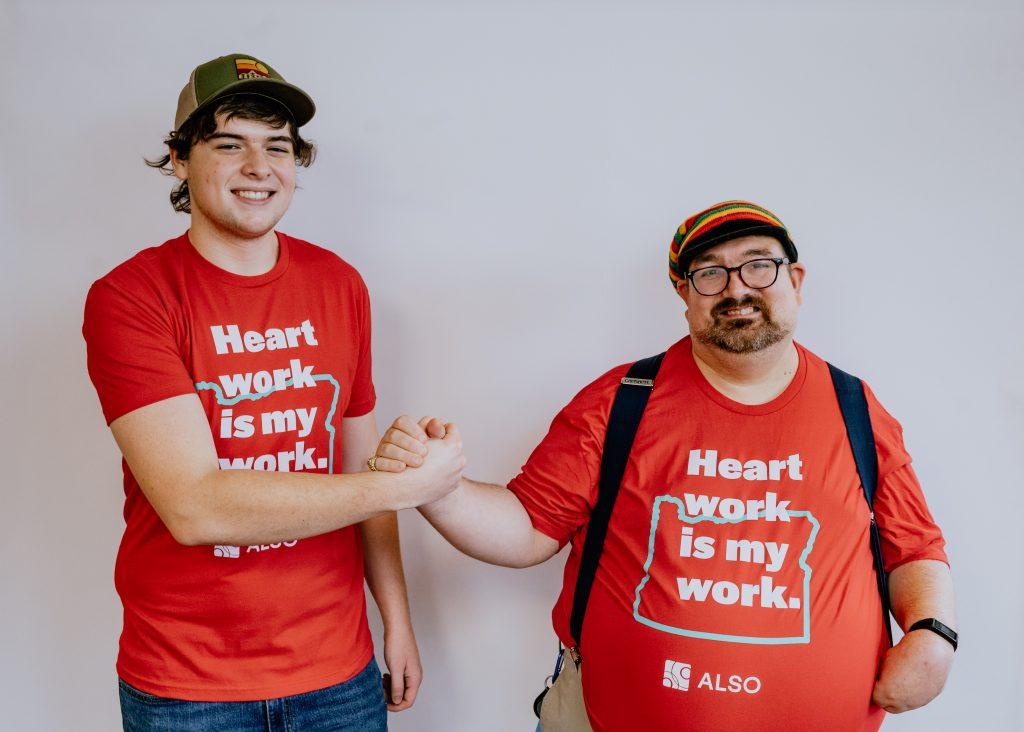
At ALSO, we know that respectful words matter a great deal. Therefore, we fully embrace the concept of person-first/person-centered language. It is part of an entire person-centered approach which holds that empowerment and dignity of the individual is of paramount significance. All of our advocates are constantly striving to inform and educate all members of the community about how this method of communication is extremely beneficial in helping individuals to reach their maximum abilities in the least restrictive environment possible.
As we continually improve our own knowledge with research, collaboration, and continuing education, we also share this knowledge with our business partners, educators, and other support system members. The result of this effort is an improved quality of life not only for the people that we support. An additional bonus is the transformation of other community members as they learn about inclusivity, equity, and diversity.
All aspects of the person-centered approach go hand-in-hand with the values that guide the heart work at ALSO: Trust, Teamwork, Innovation, Dignity, Respect, Accountability, and Humility. Together, the way we communicate, the way we advocate, and the way we care, makes a difference in the lives of individuals with intellectual and developmental disabilities.
Are you interested in helping people live the life they choose? Join the Heart Work team at ALSO. Contact Us to Learn More!

Sign up for our newsletter to get our latest news, content, and job opportunities.
Help us ensure that everyone has the same opportunities in their home, workplace and community. Let’s make dreams!
